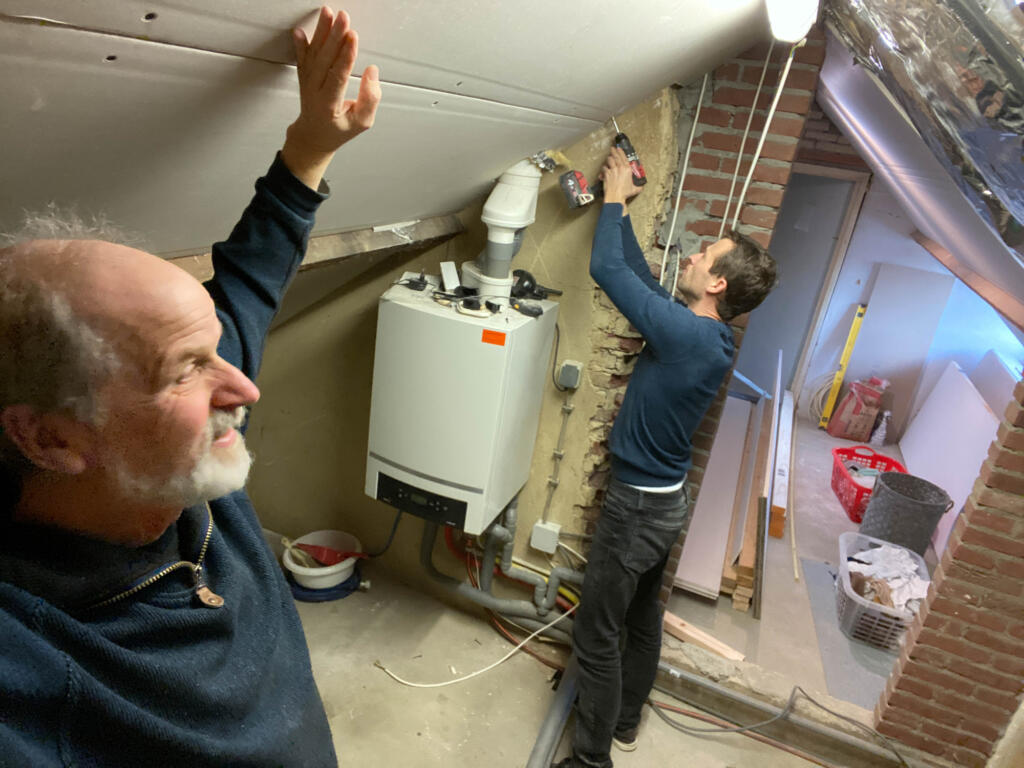An energy community (EC) generally refers to a legal entity that sets up local projects, based on democratic and cooperative values, to promote the transition towards energy systems that are more sustainable, efficient and socially fair.
In its Clean Energy for All Europeans package (2019), the EU recognises the value of ECs, offering a formal definition based on three features. According to the package materials, ECs:
- develop and operate local and cooperative production and storage infrastructure for renewable energy;
- sell renewable energy to households and businesses; and
- provide energy, energy efficiency and energy poverty services.
A key feature of ECs is that – in sharp contrast to traditional energy suppliers – rather than seeking solely to generate financial profit from the supply and sale of energy services, their primary purpose is to provide such services in ways that also deliver local environmental, economic and social benefits for members, shareholders and communities. Shaped by – and responsive to – the needs of communities they serve and driven by collective principles, ECs replace the supplier-consumer relationship with approaches that promote greater interaction and solidarity among members around energy-related issues.
As such, ECs quickly become known as credible sources of energy information and trusted actors, which creates opportunity to boost energy solidarity through other means. Many EC actions align with criteria outlined in the Clean Energy for All Europeans package, including collective investment in solar panels or collective ownership/operation of energy supply companies or distribution networks. Others focus on reducing energy costs – as well as energy-related GHG emissions – at the household and community level, such as organising collective supplier switching campaigns, providing energy efficiency services and boosting energy know-how that can lead energy savings.
Whether installing solar systems, implementing energy efficiency measures or boosting energy know-how, principles of collectivity are core to EC actions.

In recent years, interest and engagement in ECs has grown rapidly. Across Europe and the UK, diverse groups of citizens are banding together to set up local initiatives, both formally and informally, with similar aims and approaches. Together, entities such as REScoop and the European Renewable Energies Federation represent ~3 000 ECs who serve some 1.25 million EU citizens.
To capture the full range of entities engaged in such activities, CEES uses the term EC in a broader and more inclusive sense than the EU definition provided above. (Other entities might use terms such as ‘community energy’ or ‘community power’.) CEES also recognises the important contributions of other actors in this space, including local governments, NGOs and community associations, some of which are not engaged in energy supply.
Of critical importance to CEES, through close engagement, ECs can take a lead role in identifying and assisting energy-poor households. Having local knowledge and a high degree of flexibility, ECs are often well-placed to tailor services that reflect a household’s individual needs and circumstances. Facilitating access to specific support schemes is one example of areas in which ECs excel.
In line with international cooperative key principles (see box), CEES aims to help the broad range of ECs more effectively tackle energy poverty. To do so, CEES will first survey ECs regarding current activities and develop a framework for assessing their effectiveness. In a second phase, some ECs will be invited to pilot an activity that complements – or fills gaps in – their existing programmes. Based on assessment of the pilots, CEES will create an Energy Solidarity Toolkit to promote broader uptake of validated measures and mechanisms. In relation to CEES, four key cooperative principles of the International Cooperative Association (ICA) are of particular relevance.
| Cooperative key principle | CEES action |
|---|---|
| No. 4: Autonomy and Independence refers to the safe financial structure of the cooperative and the safekeeping of the members’ interests. | The CEES Energy Solidarity Toolkit will help ECs implement energy poverty alleviation projects that favour financial sustainability as well as energy sufficiency, resilience and autonomy. |
| No. 5: Education, Training and Information refers to the role of cooperatives in helping members learn and better understand the scope of action of the cooperative. | CEES has a strong capacity-building component that includes training, workshops and in-situ ‘open days’ by which it will showcase mechanisms to alleviate energy poverty so that ECs can improve and replicate them in their own programmes. |
| No. 6: Cooperation among Cooperatives states that “Cooperatives serve their members most effectively and strengthen the cooperative movement by working together through local, national, regional and international structures.” | CEES will promote EU-wide collaboration and knowledge sharing by cooperatives to tackle a common problem: energy poverty within ECs and in communities more broadly. |
| No. 7: Concern for the Community is translated in the role of cooperatives to support the community as a whole. | CEES thus aims to offer mechanisms that can be applied to the needs of the entire local community. |
To better understand the three key concepts that underpin CEES, see also the blogs on Energy poverty and Energy solidarity.